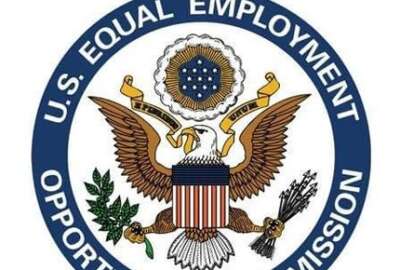A recent memo from President Donald Trump to Defense Secretary Mark Esper may pose more questions than answers about the future of collective bargaining at the Pentagon.
The memo, dated Jan. 29, gives the defense secretary the authority to exclude DoD civilian employees from the Federal Service Labor-Management Relations statute, the 1978 law that generally allows unions to bargain with agencies on behalf of groups of federal employees.
The labor-management statute is explicit: collective bargaining is in the public interest and agencies have a duty to bargain with federal unions in “good faith.” But the statute does set aside some exceptions.
Specifically, the statute allows the president to issue an order excluding an agency or subcomponent from coverage under the law if he “determines that the agency has a primary function of intelligence, counterintelligence, investigative or national security work, and the provisions of this chapter cannot be applied to that agency or subdivision in a manner consistent with national security requirements and considerations.”
Citing those exact provisions, the president last month allowed the defense secretary to make its own determinations about who should and shouldn’t be able to bargain.
Government Executive first reported the existence of the Jan. 29 memo last week.
Though Trump’s memo allows the defense secretary to exclude DoD agencies or subcomponents from collective bargaining law, it doesn’t mean — at least at this point — the secretary will use this new authority.
If DoD Secretary Mark Esper chooses to exclude certain factions of the department from collective bargaining, the department must publicize those determinations in the Federal Register. To date, it doesn’t appear he has made any determinations to exclude any.
This certainly isn’t the first time the Pentagon has considered excluding DoD employees for the purposes of national security, said Jeff Neal, a former chief human resources officer at the Defense Logistics Agency and former chief human capital officer at the Department of Homeland Security.
Neal said the prospects of excluding DoD employees from collective bargaining came up periodically during his 26-year career at the Pentagon.
Trump’s January memo cites the need for “expedient and efficient decision-making.” The Defense Department needs “maximum flexibility” to respond to emerging threats and cultivate a “lethal, agile force,” the president said.
“That’s what the exclusion was intended for, and it’s not necessary,” Neal said of the rationale described in the president’s memo. “If you look at the defense industrial units, those are trade and craft jobs. They’re supporting national security, but they’re not intelligence positions. There’s absolutely no reason those folks can’t be in a union.”
Fellows at the Heritage Foundation back in 2007 argued collective bargaining negotiations are time consuming and prioritize “employee comfort” over national security.
But past debates over national security and collective bargaining haven’t gone far because they’re often not popular, Neal said.
The American Federation of Government Employees was quick to criticize Trump’s collective bargaining exclusion, though as of last week, the union acknowledged it was still considering the ramifications the memo could have on its organization and membership.
“It could mean that we lose a lot of union members who want to be part of our union,” Everett Kelley, AFGE national secretary-treasurer, told reporters at the union’s annual legislative conference in Washington last week. “This is a right that employees have had for over 80 years within AFGE, and now this administration is trying to find loopholes to say you can’t be part of the union. It’s union-busting at its finest.”
There are already signs Trump’s collective bargaining memo isn’t faring well in Congress.
Sen. Susan Collins (R-Maine) said she was “rigorously pursuing” the prospects of excluding DoD employees.
“Think about the implications of that. Left unchecked — and I’m determined to see that we overturn it — this decision could potentially affect hundreds of thousand of employees,” Collins said at last week’s AFGE conference.
“I’ve read that the reason cited was ‘flexibility,'” she added. “Let me tell you, I do not accept that rationale. Please know that I will work with my colleagues from both sides of the aisle to protect the right of DoD civilian workers to engage in collective bargaining.”
Neal said Congress could introduce some sort of legislation or provision that either blocks the collective bargaining exclusion or expands it, which members of Congress would likely try to attach to appropriations legislation or the annual defense authorization bill.
House Democrats had included a provision in a 2020 appropriations bill which prohibited agencies from implementing or enforcing any collective bargaining agreement or term or article in a CBA that wasn’t mutually agreed to by both a department and its federal union.
The provision, however, didn’t make it into one of final “minibus” spending bills, which Congress cleared late last year.
Meanwhile, Kelley said the AFGE was “exploring every avenue” it could to block any outcome from Trump’s collective bargaining memo.
Richard Trumka, president of the American Federation of Labor and Congress of Industrial Organizations (AFL-CIO), vowed to take action a few steps further.
“We will fight this in the courts,” he told AFGE members. “We will fight this in Congress. We will fight this on every front and with every fiber of our being.”
Copyright
© 2024 Federal News Network. All rights reserved. This website is not intended for users located within the European Economic Area.

